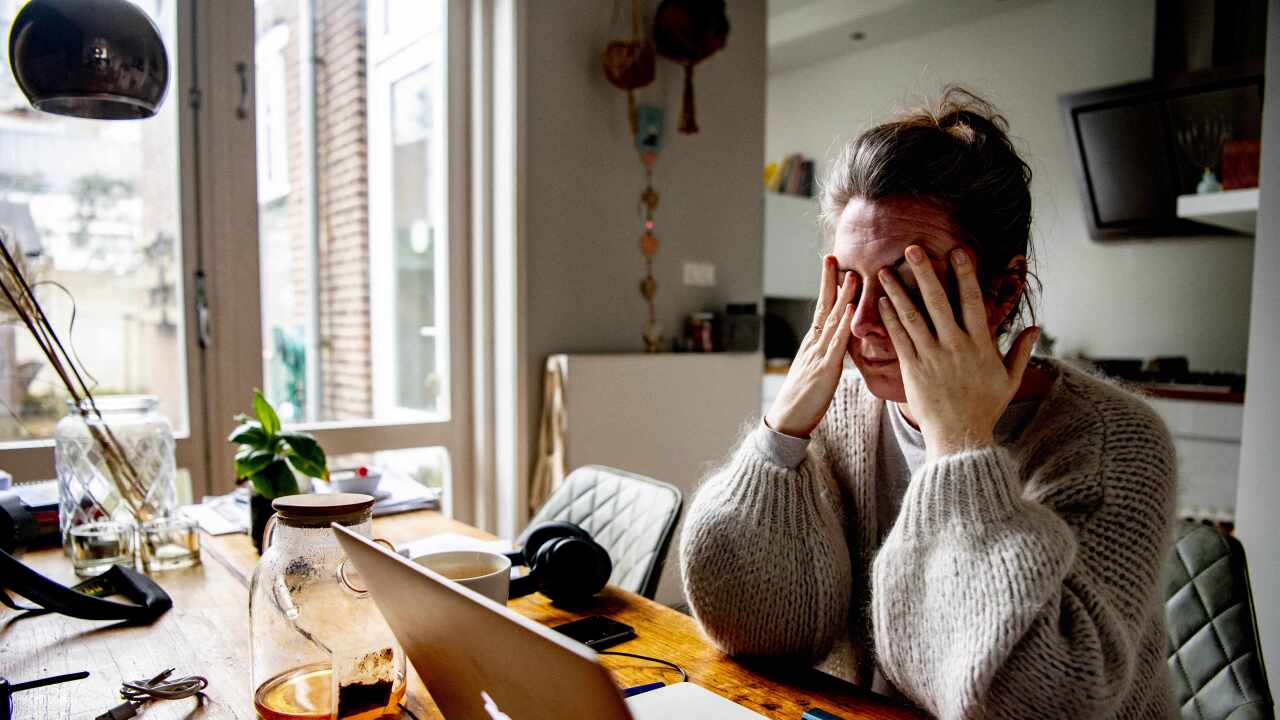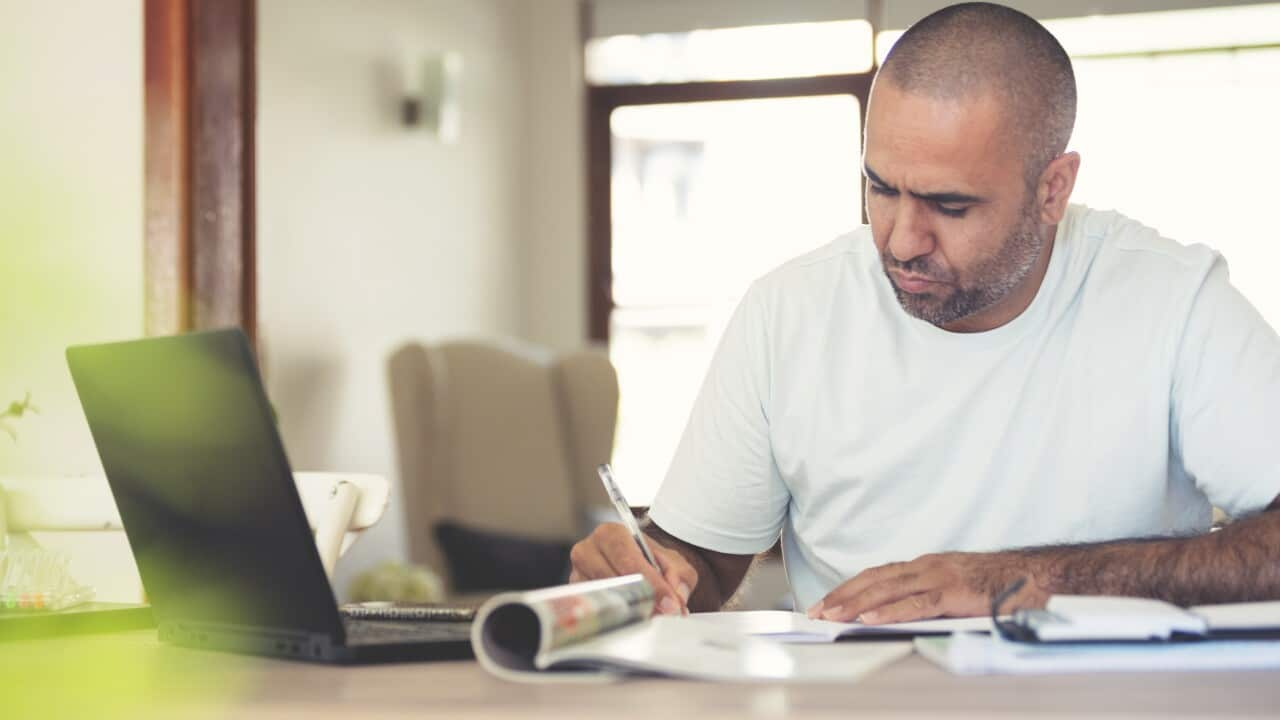Key Points
- Australians' top New Year's resolutions for 2024 have been revealed in a new survey.
- More than half are setting a financial goal, while some are choosing to forgo New Year's resolutions altogether.
- Experts say the key to sticking with resolutions includes setting goals that matter and focusing on small wins.
Saving money has moved up the list of top New Year's resolutions for Australians this year, according to a new survey.
Almost half of adult survey respondents nominated a financial goal as one of their primary resolutions — an increase of 7.1 per cent compared to 12 months prior, comparison website Compare the Market found.
Cost of living pressures appear to hitting gen Z the hardest, with three-quarters (76 per cent) of the group saying they want to save more cash in 2024.
The proportion of people with the same goal dropped among baby boomers (24.8 per cent), gen Xers (46.4 per cent) and millennials (68.2 per cent).
A healthier lifestyle — including exercising more, eating better and improving wellbeing — was listed as a New Year's resolution by 43.4 per cent.
Being more environmentally conscious, going on a holiday, finding a new job, finding love, and getting a pet were also popular responses.
There were also a group of individuals who chose not to make any New Year's resolutions, a choice more common among baby boomers (63.6 per cent) compared to other generations such as gen Z (8 per cent).
The importance of reasonable resolutions
La Trobe University positive psychology researcher Ros Ben-Moshe said a tendency to set unreasonably high New Year's resolutions led to higher rates of failure.
"Around 50 per cent of adults make New Year's resolutions, but around 80 per cent of these fail by Valentine's Day.
"There are many things that can lead to that failure rate. Some are too ambitious with their New Year's resolution. For others, they're supported in their behaviour change by their peers or the social circle that they are in.
"Sometimes, the resolution is just not things that people want enough — so they're not passion-related. All these things contribute to that large failure rate.
She said focusing on setting habits and consistency can improve the chances of sticking with resolutions.
"I think it's really important when it comes to resolutions to frame it in the positive and really adopt an attitude of self-compassion to nurture progress.
"Celebrate the wins, even if they're small. Aim for progress rather than perfection. These are all the sorts of things that really help to create more sustainable resolutions."
Ben-Moshe said publicly stating New Year's resolutions and having others remind you of your goal can also be helpful.
"Behaviour change doesn't happen through chance.
"And I think that's the beauty about January. January was actually named after the two-faced Roman god Janus who looked forward for new beginnings as well as backward for reflection and resolution.
"And I think that is what it just provides us with — that opportunity to take a look at what's gone well in our life, what we'd like to improve on, and what we are ready to let go of."
University of Sydney professor Cathie Sherrington is a physiotherapist and researcher on interventions for physical inactivity including healthy ageing.

More than 43 per cent of survey respondents said a healthier lifestyle — including exercising more, eating better and improving wellbeing — was on their New Year's resolution lists. Source: Getty / Tom Werner
The risks of going too hard and too fast
She told SBS News that achieving success with health-based New Year's resolutions is all about understanding behaviour change and the importance of starting small.
She warns that going too hard and too fast risks injury and exercise avoidance.
"I quite like using a framework for behaviour change called the COM-B. And so that's about having the capability, the opportunity and the motivation. And to us that really resonates with needing to have each of those different aspects in place.
"So capability is knowing what to do. Opportunity is living somewhere where there's somewhere to walk or an inclusive community exercise place to go. And then the motivation is what makes us actually get to it."
The Australian government is in the process of considering how to update physical activity guidelines to reflect the latest advice from the World Health Organization.
The body is encouraging all adults to undertake 150-300 minutes of moderate-intensity exercise, including two sessions of strength training and balance training to reduce the risk of falls for those aged 65 years and over.













